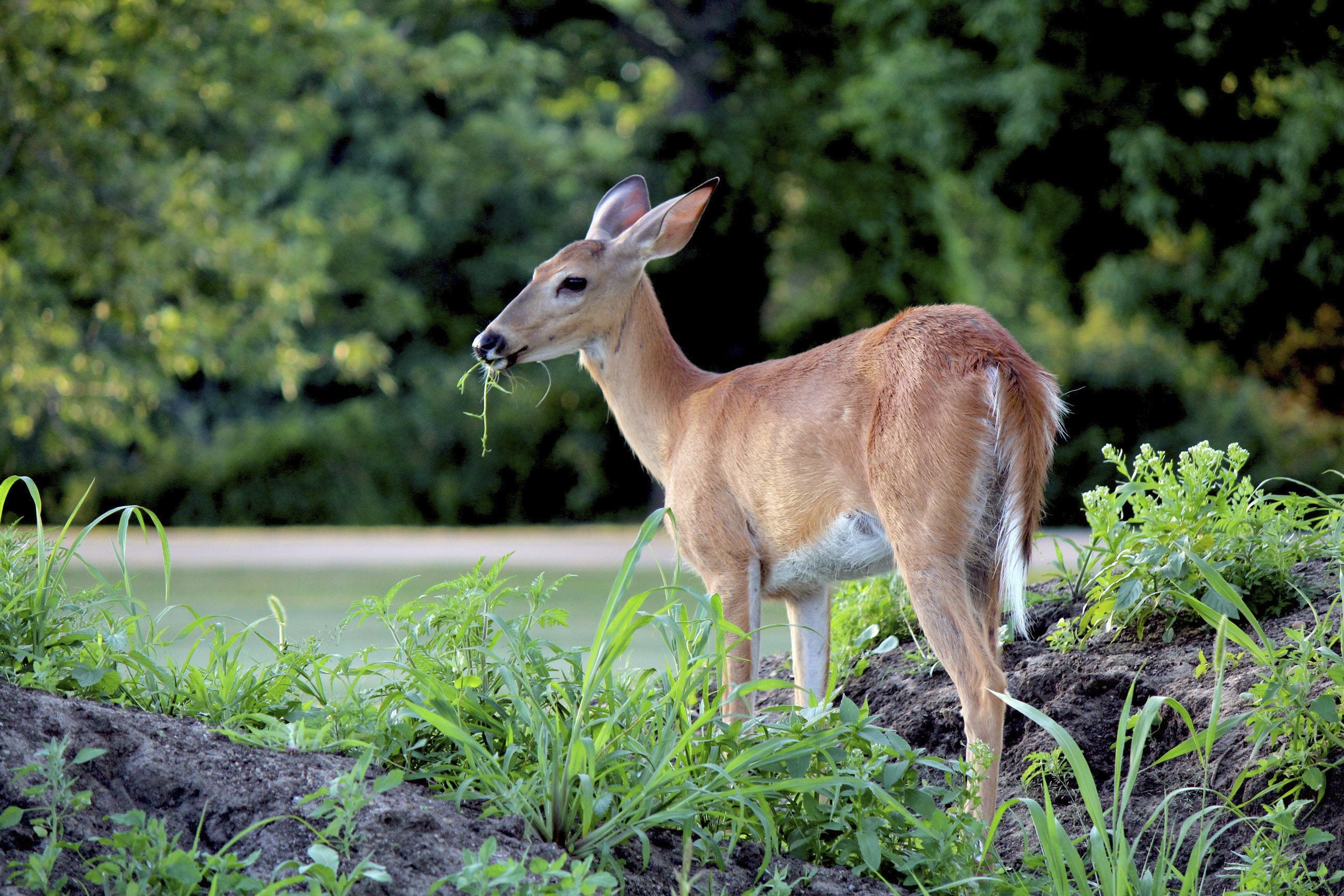Roses And Deer – Do Deer Eat Rose Plants And How To Save Them


Sign up for the Gardening Know How newsletter today and receive a free copy of our e-book "How to Grow Delicious Tomatoes".
You are now subscribed
Your newsletter sign-up was successful
There’s a question that comes up a lot – do deer eat rose plants? Deer are beautiful animals that we love to see in their natural meadow and mountain environments, no doubt about it. Many years ago my late grandfather penned the following in his little grade school Friendship Book: “The deer loves the valley and the bear loves the hill, the boys love the girls and always will.”
Deer do indeed love the beautiful, succulent growth they find in those meadows and valleys, but they cannot resist a rose garden if there is one close by. Let’s learn more about roses and deer.
Deer Damage to Rose Bushes
I have heard it said that deer look at roses like many of us do fine chocolates. Deer will eat the buds, blooms, foliage, and even the thorny canes of rose bushes. They are especially fond of the new, tender growth where the thorns are not so sharp and firm yet.
Deer usually do their browsing damage at night and occasionally you may see deer eating roses during the day. According to published information, each deer eats, on average, 5 to 15 pounds (2.5 to 7 kg.) of plant material taken from shrubs and trees each day. When we consider that deer generally live and feed in herds, they can do an astounding amount of damage to our gardens, roses included, in a short amount of time.
Where I live in Northern Colorado, I cannot count the times I have gotten phone calls from fellow rose-loving gardeners in total despair about the loss of their entire rose beds! There is little one can do once their roses have been munched on by the hungry deer except prune down what is left of the damaged canes. Also, pruning out the broken canes and sealing all the cut ends may help.
Watering the rose bushes with a water and Super Thrive mix will go a long way in helping the roses recover from the major stress of such an attack. Super Thrive is not a fertilizer; it is a product that provides essential nutrients to the bushes at a time of great need.
Do not apply large amounts of fertilizer, as the roses need some time to recover. The same is true after a hail storm or other like events that cause significant damage to rose bushes.
Sign up for the Gardening Know How newsletter today and receive a free copy of our e-book "How to Grow Delicious Tomatoes".
Deer Proofing Roses
If you live in an area that is known to have deer close by, think about protection early on. Yes, the deer do love roses, and it does not seem to matter if the roses are the popular Knockout roses, Drift roses, Hybrid Tea roses, Floribundas, Miniature roses, or the wonderful David Austin shrub roses. The deer love them! That said, the following roses are considered to be more resistant to deer:
- Swamp rose (Rosa palustris)
- Virginia rose (R. virginiana)
- Pasture rose (R. Carolina)
There are many deer repellents on the market too, but most need to be reapplied from time to time and especially after a rainstorm. Many things have been tried as deer repellents over the years. One such method involved hanging bars of soap around the rose garden.
The bar soap method did seem to be effective for a while, then the deer seemed to get used to it and went ahead and did their damage. Perhaps, the deer were just hungrier and the scent of the soap was no longer a strong enough deterrent. Thus, the need to rotate whatever form or method of repellent used is important to achieve maximum protection.
There are mechanical gadgets on the market that act as protective deterrents, such as timed or “electronic seeing eye” items that cause a sprinkler to come on or a noise when motion is detected. Even with the mechanical items, the deer get used to after a while. The use of an electric fence placed all around the garden is probably the most helpful deterrent.
If it’s not tall enough, however, the deer will jump over it, so a trick of baiting them to the fence may be used if desired, which involves the use of peanut butter spread lightly onto the electric fence wire while it is turned off. The deer love peanut butter and will try to lick it off, but when they do so, they get a little shock that sends them in the other direction.
A Rosarian friend of mine in Minnesota told me about the electric fence and peanut butter trick that he calls the “Minnesota Deer Trick.” He has a great blog website located here: http://theminnesotarosegardener.blogspot.com. In some cases, placing dog hair or dryer sheets around and through the rose bed has worked. Just remember that changing it up is important to its effectiveness.
Another method of deterrent protection to consider is planting a border around the rose bed of plants known to repel deer or are resistant to them. Some of these include:
Contact the Extension Service where you live or a local Rose Society group for more helpful information specific to your area.

Stan V. Griep contributed to Gardening Know How for many years and has been a Colorado Native Rosarian for over four decades. He is an American Rose Society Certified Consulting Master Rosarian in the Rocky Mountain District, and a member of the Denver Rose Society, the Loveland Rose Society, and the American Rose Society. He is Gardening Know How's in-house expert on all things roses.